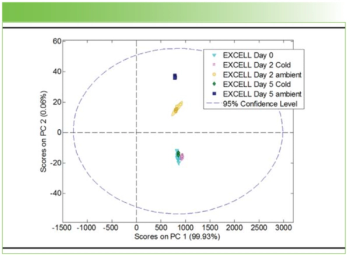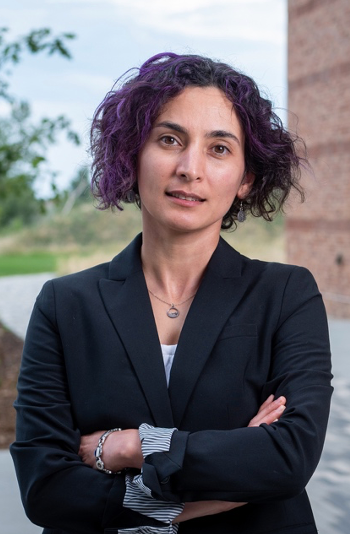
Ishan Barman Wins 2023 Clara Craver Award at SciX
Ishan Barman, the 2023 recipient of the Coblentz Society Clara Craver Award, held a plenary session during SciX that focuses on transformative biophotonics in disease detection and monitoring.
Ishan Barman, an associate professor at Johns Hopkins University in Baltimore, Maryland, has been named the 2023 winner of the Coblentz Society Clara Craver Award. Barman held a plenarysession at SciX in Sparks, Nevada on October 9 about transformative biophotonics in disease detection and monitoring to commemorate his win (1). This award recognizes the accomplishments of a young researcher in applied vibrational spectroscopy.
This session focused on the cutting-edge advancements in biophotonics for disease detection and monitoring, through plasmon-enhanced Raman spectroscopy. Barman utilizes Raman spectroscopy in his research due to its non-invasive nature and ability to directly analyze cell and tissue compositions in their native states.
“This made [Raman] an ideal choice for investigating the subtle changes induced by microbiota-secreted metabolites in cancer cells,” he told Spectroscopy in an interview (2).
The research involved focused on plasmonic nano-assemblies featuring nanogaps between nanoparticles (NPs), which manifest strong electromagnetic field localization and enable spectroscopic enhancement approaching the single-molecule regime. Specifically, the research centers on the DNA-silicified template for Raman optical beacon (DNA-STROBE), a synthetic innovation that harnesses DNA-templated sol-gel chemistry for the creation of robust nanocavities. From there, it introduces DNA self-assembled RING nanoprobes for quantum biosensing.
The team integrated nitrogen-vacancy centers with plasmonic nanocavities, which offered enhanced spatiotemporal resolution for detecting ion flux-induced weak magnetic fields and spin states, opening avenues for understanding spin dynamics in biological systems. For the final addition to this system, enzyme-mediated precision sensing was explored through self-amplifying Raman nanoprobes, capable of in situ assembly for molecular characterization and disease visualization. Using this platform, the team discovered an effect where short-term exposure to microbiota-secreted metabolites had lasting effects on cancer cell behavior.
“We found that the Bacteroides fragilis toxin (BFT)-induced biomolecular changes not only persisted but were potentially enhanced after tumor growth, highlighting the significance of microbiota-cancer cell interactions in shaping cancer progression,” Barman explained (2). These solutions allowed for the progression of spectroscopic principles into practical applications, which shows great potential for disease detection, cell analysis, and quantum biosensing.
References
(1) SciX. Plenary Sessions: The Coblentz Society Clara Craver Award; Ishan Barman. FACSS Analytical Science and Innovation 2023.
(2) Chasse, J. Examining Pathogen-Induced Morphomolecular Divergence in Tumor-Derived Cells with Raman Spectroscopy: An Interview with Clara Craver Award Winner Ishan Barman. Spectroscopy 2023.
Newsletter
Get essential updates on the latest spectroscopy technologies, regulatory standards, and best practices—subscribe today to Spectroscopy.




